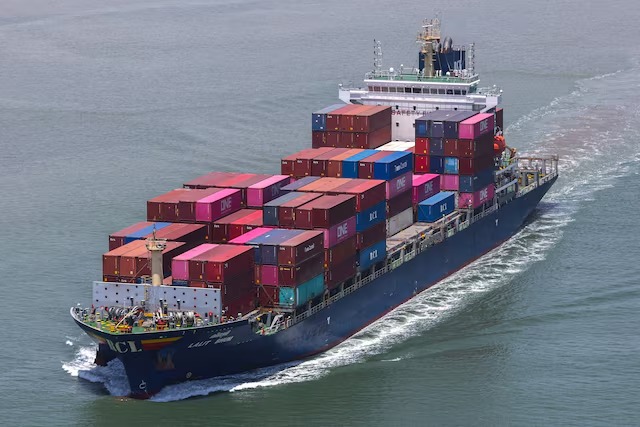US Pressures Countries to Reject UN Ship Fuel Emissions Deal or Risk Tariffs
The United States has warned countries to reject a United Nations-backed deal aimed at cutting marine fuel emissions, threatening tariffs, visa restrictions, and port levies against those who support the accord, according to US and European officials.
The Trump administration, which has consistently wielded tariffs as leverage in trade disputes, is now seeking to expand Washington’s influence in global shipping. The move comes in response to a draft agreement reached in April under the UN’s International Maritime Organization (IMO) that would impose fees on ships exceeding global carbon emissions standards.
Washington withdrew from the IMO negotiations ahead of the draft deal and announced in August that it would retaliate against supporters. The US argues that the measures would impose heavy costs on the shipping industry while offering minimal benefit in cutting emissions.
In recent days, the US State Department has contacted IMO member states, urging them not to adopt the so-called “Net-Zero Framework” when it comes up for a vote at an extraordinary IMO session in October. A State Department spokesperson confirmed that Washington was “actively exploring and preparing to act on remedies including tariffs, visa restrictions, and/or port levies should this effort succeed”. The official added that the US was also encouraging allies to consider similar measures.
The Dutch government confirmed it had received a verbal warning from US officials that the Netherlands could face trade penalties if it backed the framework. It remains unclear which other countries have been approached.
The London-based IMO, which regulates international shipping safety, security and pollution, stressed that the October session would provide a platform for member states to address concerns before adoption.
Global shipping contributes nearly 3% of worldwide CO2 emissions, with 90% of trade conducted by sea. Without intervention, emissions are projected to rise sharply. The IMO agreement is intended to accelerate decarbonisation of the sector.
The draft deal passed earlier this year with the support of 63 countries, while 16 voted against and 24 abstained. A majority will be required for final adoption, though observers warn that further abstentions could block its passage.
The outcome of October’s session is likely to determine whether the IMO can deliver a binding international mechanism to curb shipping emissions — or whether geopolitical divisions will stall global climate efforts at sea.
Source: Reuters



